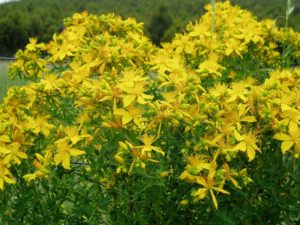
Taking Medicinal Herbs and Pharmaceutical Drugs – Safety Considerations
When people are concerned about the way medicinal herbs may interact with their pharmaceutical medications, they often turn to the internet to find an answer.
Facts vs. Myths
Sadly, there is a lot of misinformation on potential adverse interactions between medicinal herbs and pharmaceutical drugs. Concerns of taking medicinal herbs with pharmaceutical drugs centre around the herbs changing the way the drugs work.
Advice of herb-drug interactions is often found on ‘reliable’ and ‘authoritative’ websites. However, it’s rare for this information to be referenced. It is often based on incorrect assumptions of the likelihood of an interaction, and contain mistakes that are not based in fact, and have been perpetuated for so long the original source is lost in time.
Professional and Considered Advice
Like many naturopaths, I take a risk based approach to herb-drug interactions. This risk based approach is based on the known pharmacology of the herb and the drug. There is a lot of clinical evidence on how herbs and drugs interact for me to draw on.
If you are taking a pharmaceutical drug and want to also take a medicinal herb, seek advice from a qualified and accredited naturopath or herbalist. Your naturopath/herbalist will be able to assess the risks of taking pharmaceutical drugs and herbs at the same time. They will monitor you for adverse/unwanted side effects, and provide important advice like when to take your pharmaceutical drugs and when to take your medicinal herbs. Your naturopath/herbalist can advise on whether it is safe to take medicinal herbs with the particular pharmaceutical drug you are currently taking.
This informed, professional advice is invaluable.

